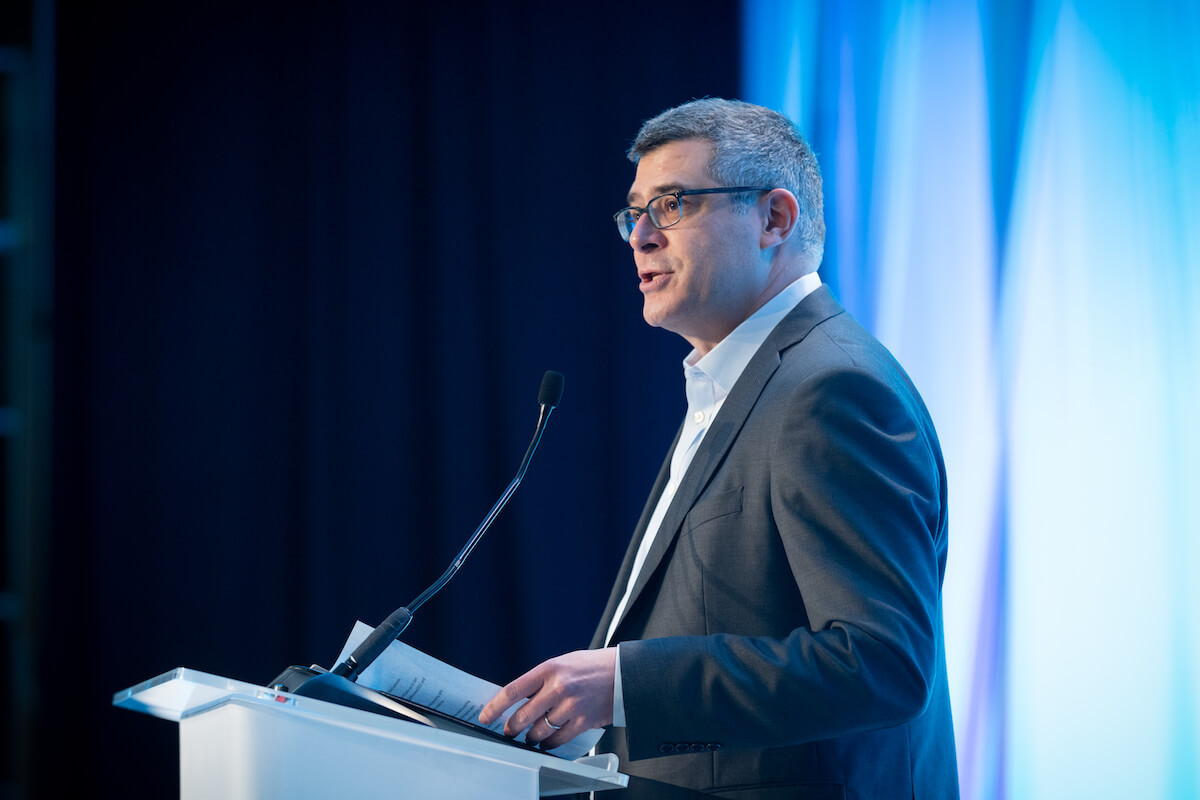TGIF, Agents of Impact!
Follow the impact. A well honed “impact” lens can give investors an early beat on trends, sectors and opportunities. A “gender” lens tweaked for companies founded by – and solving problems for – women identifies the growing market for tech-solutions for young families (see No. 1, below) and overlooked entrepreneurs in East Africa (No. 2). An “inclusion” lens that scans for underestimated founders invests in startup Mahmee before Mark Cuban, as did Backstage Capital (No. 1). If your lens is “local” you’re tracking New Revivalists in Appalachian states seeding post-coal projects and industries before capital descends (No. 5). A “global goal” lens looking for solutions to big problems turns up smallholder farming – which employs billions and produces most of the world’s food – before mainstream investors eventually come around (No. 9). A “climate” lens in the corporate world means managing forest risk in your supply chain, and doing it ahead of your competitors (No. 7). If you tune into the brief each morning, you have a name for that impact-driven edge. The impact alpha.
– Dennis Price, editorial director
Featured: ImpactAlpha’s Big 9
1. Investors flock to “famtech” for new parents. Tech-savvy Millennials are growing up and having kids – and turning to technology to stay healthy, lower the cost of childcare and buy used gear. Call it childcare tech, parenting tech, tech for families, or simply, famtech; a growing pool of investors is calling it a big opportunity. In the past six years alone, venture firms have deployed some $500 million into startups targeting early parenthood solutions, including Cleo, a healthcare-focused employee benefits platform for working parents, and Sawyer, a kids activity scheduling app. “We see [the sector] as emerging in terms of pipeline and investment capital,” says Zoe Schlag of Techstars Impact, which backed BridgeCare, whose tech platform makes childcare more affordable for working parents. That so many of the responsibilities of child-rearing fall on women may explain the proliferation of female founders building winning “famtech” companies. Dive in.
- Just this week. Arlan Hamilton, Serena Williams, Mark Cuban and Steve Case lined up behind Mahmee to improve maternal health.
2. Renew’s gender lens includes cutting right size checks for East African female founders. The Addis Ababa-based impact investor views women not as “beneficiaries” but overlooked assets underserved by financial markets. The network of 150 angel investors has coordinated a dozen investments of about $500,000 each into Ethiopian startups. Renew found that although women entrepreneurs outnumber their male counterparts in East Africa, fewer women-led companies are ready to absorb half-million dollar checks. A new “mini-fund” of pooled capital will cut smaller checks, invest exclusively in women-led companies and expand to Uganda. Its first investment is in Kampala-based Kijani Baby, a Ugandan maker of colorful, reusable cloth diapers. Gender smart.
3. Wire Group’s impact fund-of-funds offers Dutch families global opportunities. European investors lead in sustainable investing in the public markets. They’ve been slower to embrace private market impact opportunities. Wire Group, based in the Netherlands, wants to change that with a new impact fund-of-funds that will give Dutch family offices a chance to spread their investments across private impact investment funds targeting sustainable food and agriculture, access to clean energy and healthcare, and conservation around the globe. The planned €60 million fund aims to give family offices a clear starting point. “What matters is raising consciousness on the way our money works in the world,” Wire Group’s Carolien Wegener told ImpactAlpha. Check it out.
4. Agent of Impact: Valerie Red-Horse Mohl of Social Venture Circle. Long before Valerie Red-Horse Mohl was raising and structuring billions in capital for tribal nations and managing a network of impact investors, she was in film school on scholarship at UCLA. When she answered a Drexel Burnham ad for a “Girl Friday,” a Mad Men-era term for an office helper, her prospective employer explained that his growing firm did leveraged finance and high yield bonds. “He was speaking Chinese to me,” recalls Red-Horse Mohl, who got the job anyway. Her interviewer, it turns out, was famed financier Mike Milken. She spent almost a decade at the investment bank learning the intricacies of high finance. That knowledge would serve her well when she started her own investment firm, Red-Horse Financial Group, to help Indian tribes (she is Cherokee) take control of their economic futures. After the Indian Gaming Act passed, “A lot of my people needed financial advice because the capital markets were taking advantage of them,” she says.
Red-Horse Mohl has since structured over $3 billion in capital for tribal nations. She’s also launched nonprofits and produced and directed films; the most recent, about Wilma Mankiller, the first woman to lead the Cherokee Nation, debuted on PBS last year. All of that led her to her current role as executive director of Social Venture Circle, a network of entrepreneurs and impact investors. The network is the result of a merger of two pioneering organizations, Social Venture Network and Investors Circle, which together nurtured a generation of values-driven businesses from Ben & Jerry’s to Seventh Generation. Red-Horse Mohl has helped SVC expand beyond angel investing to embrace a range of integrated capital solutions. “We’re looking at every possible structure of finance that could be available to an impact company,” she says. Married four decades to former NFL player Curt Mohl, she is a self-described team player. “I don’t look at anyone as a competitor. We all need to work together,” she says. Follow ImpactAlpha on Instagram.
- Follow the talent. Sonal Shah joins the presidential campaign of Pete Buttigieg as national policy director. Shah will take a leave of absence from her role as executive director of Georgetown’s Beeck Center for Social Impact and Innovation. Follow all of the talent with ImpactAlpha’s weekly report on career moves, job openings, events and opportunities.
5. Making Appalachia’s post-coal economy. The economic ecosystem of mines is much more than the mine, says Fritz Boettner of Sprouting Farms, a West Virginia nonprofit that supports sustainable farm businesses. In Part Two of ImpactAlpha’s two-part series on Appalachia’s post-coal economy, three projects showcase sustainable value creation in the region. Boettner shares how Sprouting Farms is supporting the transition to clean energy and local food with a solar-powered aquaponics farm in Kermit, West Virginia. SunTribe Solar aims to attract job-creating businesses with a solar-powered data center built on a dormant coalfield. Engineers at Rural Action are turning toxic remnants of the coal industry into value pigments and paints. “Our philosophy is people, planet and profit,” Rural Action’s Michelle Shively told ImpactAlpha, “and all of those are on an equal footing.” Clean of coal.
- Beyond Coal, Part One: “Seeding Appalachia’s sustainable future with public and private capital.”
6. Deals of the week. Stay on top of the dealflow all week long on ImpactAlpha.com. A few that stood out:
- NEW: Sustainable investing platform Ethic raises $13 million in a round led by existing investor Nyca Partners. The round also included Fidelity Investments and Ashton Kutcher’s Sound Ventures, as well as existing investors ThirdStream Partners, Urban Innovation Fund and Kapor Capital.
- Returns on inclusion. Brooklyn’s Incubator Project backs local nonprofits driving racial justice… New Media Ventures backs startups engaging new voices and voters… Opportunity Zone Justice acceleratesreturning citizen entrepreneurs in Washington D.C.
- Sustainable agriculture. Pink Farms secures early funding to bring vertical farming to Brazil… Pure Salmon plans $250 million sustainable aquaculture plant in Lesotho… Caspian and Hivos-Triodos Fund backIndia clean agritech startup Ecozen… Harvest Returns’ Opportunity Fund will focus exclusively on sustainable agriculture.
- Inclusive fintech. Finix raises $17.5 million to help companies control their own payments… Remitly raises $220 million for low-cost money transfer services.
7. Forests pose risk and opportunity in corporate supply chains. Global corporations including Walmart, Estee Lauder and IKEA are putting their brands and supply chains at risk by failing to disclose deforestation risks. Addressing “forest risk” presents at least a $27 billion opportunity. A new CDPreport found that less than 25% of companies track the financial impact of deforestation on their businesses. Those that do calculated potential losses of $30.4 billion. Leaders like Chilean pulp and paper company Empresas CMPCare managing forest risk by investing in capabilities to predict, detect and combat fires. Laggards like Associated British Foods, the Kraft Heinz Company and Avon don’t even report forest commodity-linked revenue. Climate smarter.
8. How drones can better deliver for global development. Drones are lauded as a solution to getting essential goods and services to hard to reach places. Few projects, however, have grown beyond the pilot stage. Most drones are at least three years away from being cost-competitive with other delivery methods, like motorcycles, notes a new report from Devex. In the development setting, drones are also perceived to distract and divert resources from basic infrastructure, healthcare and energy needs. The key to nudging drones off the fringes and into mainstream development efforts “is improving the reliability and lowering the cost of the technology, while also coordinating rather than duplicating efforts,” says Devex’s Catherine Cheney.Zoom in.
9. How smallholder farmer financiers shifted perceptions of risk. A key obstacle to closing the “missing-middle” financing gap for small and mid-size businesses in emerging markets is the perception that such investments involve high risk or low return (see, “Financing inclusive growth at Palladium’s Positive Impact Summit”). The market for small-holder finance has fought that perception with smart subsidies, new technologies and a rich ecosystem of incubators, accelerators, technical assistance providers, investors and impact and impact funds. Attitudes appear to be shifting. “We have witnessed a fundamental shift in the market,” say the Rural and Agricultural Finance Learning Lab and ISF Advisors, a Dalberg spinoff. “Rather than being a beneficiary, the smallholder farmer is increasingly viewed as a potentially valuable customer.”
- Count the ways. “Smallholder farmers are investable.”
– July 19, 2019











